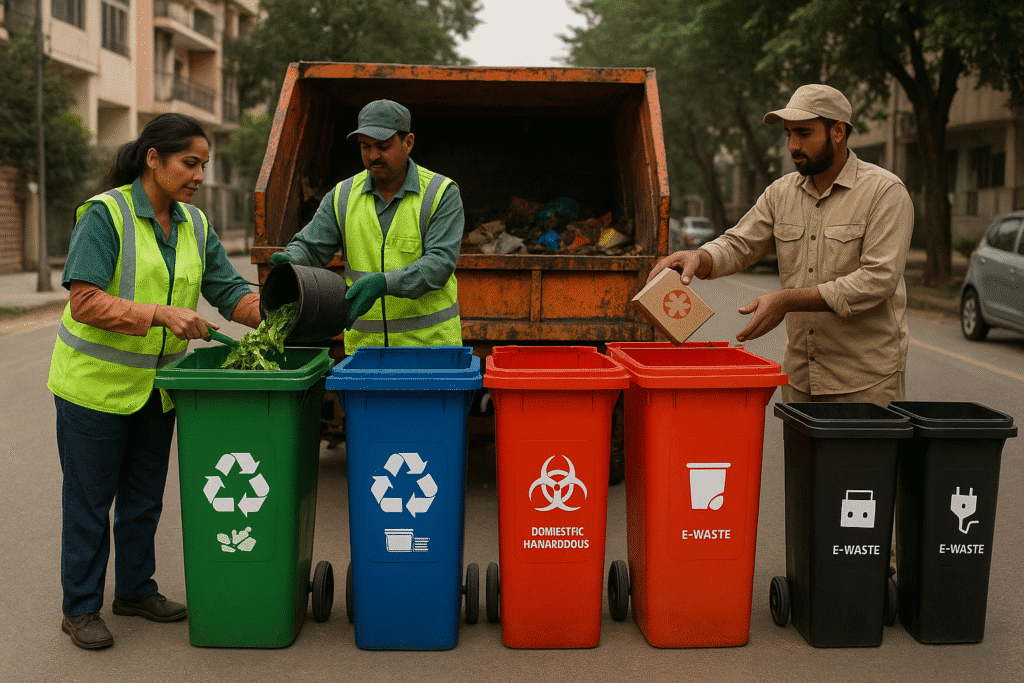Gurugram: In an effort to strengthen urban sanitation and promote sustainable waste management, the Municipal Corporation of Gurugram (MCG) has drafted new Solid Waste Management and Handling Bylaws, 2025, proposing stricter compliance rules, heavy penalties, and a five-bin segregation system for all households and institutions.

The draft, which was sent to the state government for approval last week, will come into effect after official clearance. Citizens have been given one week to share feedback, either online through the MCG website or in writing at its Civil Lines headquarters.
“Under the Swachh Bharat Mission (Urban), the corporation is committed to strengthening waste management in Gurugram. The bylaws have been drafted and forwarded to headquarters, and citizens’ feedback is being invited,” said Pradeep Dahiya, MCG Commissioner. (HT)
Five-Bin Waste Segregation System
Replacing the current two-bin system, the proposed model introduces five distinct dustbins for segregation at source:
- Green (Biodegradable): Kitchen waste, leftover food, vegetable peels.
- Blue (Non-biodegradable): Plastic, paper, cloth, metals.
- Red (Domestic hazardous): Paint cans, pesticides, thermometers.
- Yellow (Sanitary/Biomedical): Diapers, sanitary pads, PPE kits, expired medicines.
- Black (E-waste): Bulbs, tube lights, batteries.
For construction and demolition (C&D) waste, builders and residents must use white disposal bags.
Higher Penalties and Accountability
The new bylaws propose hefty fines to enforce compliance.
- Failure to segregate waste: ₹200–₹1,000 for repeat violations.
- Burning waste in the open: ₹5,000–₹20,000.
- Dumping on roads or public spaces: ₹25,000–₹1 lakh plus legal action.
- Public littering: ₹500 fine.
Institutions producing over 100 kg of waste per day, such as hotels, hospitals, and large residential complexes, will be identified as Bulk Waste Generators (BWGs) and must process their wet waste on-site through composting or similar methods.
Restrictions on Single-Use Items and Event Waste
Street vendors will be prohibited from using single-use disposable items. Additionally, organisers of events with over 100 participants must notify the MCG in advance, avoid disposables, and pay a waste management fee.
A Step Toward Sustainable Urban Living
Officials noted that Gurugram’s recurring issues with open dumping and garbage burning have rendered previous fines ineffective. The revised bylaws aim to create a system rooted in accountability, transparency, and community participation.
“This law is not just about penalties—it’s about transforming Gurugram’s waste culture,” said an MCG official. “Effective implementation will significantly improve urban cleanliness and help align the city with national and global sustainability standards.” (HT)
The initiative is expected to ease the burden on landfill sites and promote segregation and recycling at the household level—bringing Gurugram closer to becoming a zero-waste city.
Also Read: GRIHA Council to Host Green Building Tour at Uttarakhand Niwas Ahead of 17th GRIHA Summit 2025
